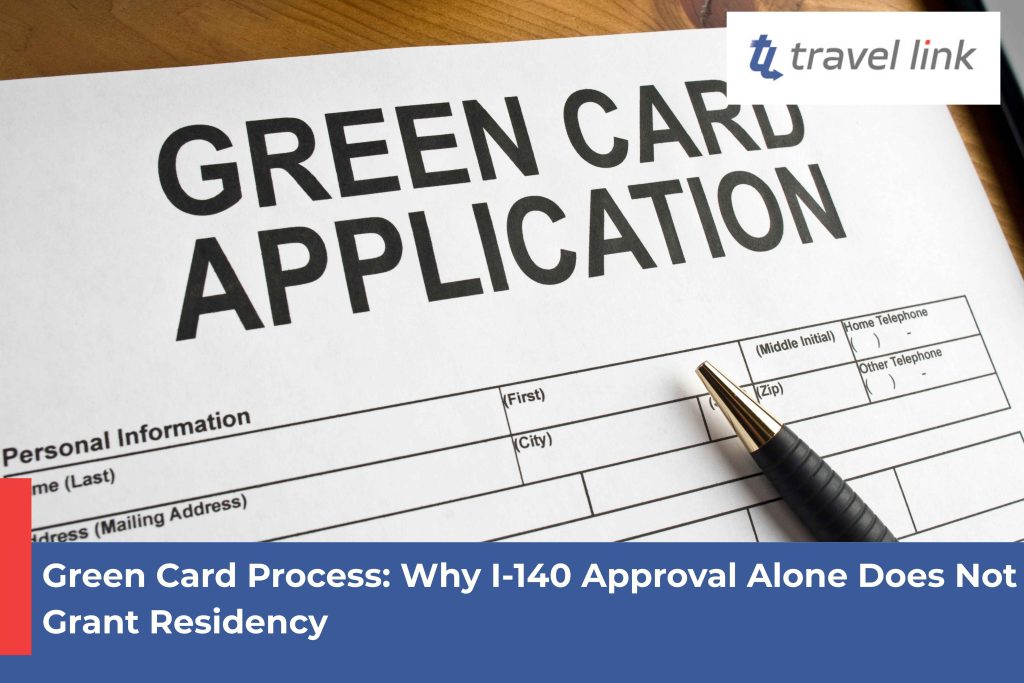Green Card Process: Why I-140 Approval Alone Does Not Grant Residency
Many applicants assume that once their I-140 petition is approved, they automatically receive US permanent residence. However, this is a common misconception. An approved I-140 is a critical milestone, but it does not grant a green card, lawful status, or immediate work authorization in the United States.
What I-140 Approval Means—and What It Doesn’t
- ✅ What it does: It establishes that you qualify for a specific immigrant visa category and secures your priority date (your place in line for a green card).
- ❌ What it does not do: It does not give you permanent residence, employment authorization, or lawful immigration status in the US.
According to USCIS, an immigrant petition only classifies you in a particular visa category. It does not in itself allow you to stay or work in the country.
Why the Priority Date Matters
The priority date is crucial because it determines when you can move forward in the green card process. For employment-based applications, the priority date is usually:
- The date the Department of Labor accepts your labor certification, or
- The date USCIS receives your I-140 petition.
When your priority date becomes current in the Visa Bulletin, you can proceed with one of two options:
1. Adjustment of Status (Form I-485)
- Available if you are already in the US, legally admitted, and maintaining valid nonimmigrant status (H-1B, L-1, O-1, etc.).
- You must also have a visa available and meet all eligibility requirements.
2. Consular Processing
- If you are outside the US, your case goes to the National Visa Center (NVC).
- You will complete forms like DS-260 and attend an interview at a US consulate abroad.
- Processing times vary by location.
Important Considerations
- I-140 can be revoked → If the sponsoring employer withdraws the petition, or if USCIS finds fraud or misrepresentation.
- Extensions under AC21 → If your I-140 is approved or pending for at least 365 days, you may qualify for H-1B extensions beyond the standard six-year limit.
- Employment authorization in compelling cases → In rare situations, nonimmigrants with approved I-140s may apply for temporary work authorization under category (c)(35), and their dependents under (c)(36).
Why This Matters
The I-140 is an important step toward permanent residency, but it is not the final step. You must:
- Maintain lawful nonimmigrant status while waiting.
- Monitor your priority date closely.
- Prepare for either adjustment of status or consular processing once your date is current.
For applicants from countries with significant backlogs—like India—the wait can be long, making proper planning essential.
